
The Darrell McClain show
Independent media that won't reinforce tribalism. We have one Planet; nobody's leaving, so let’s reason together!! Darrell McClain is a Military veteran with an abnormal interest in politics, economics, religion, philosophy, science, and literature. He's the author of Faith and the Ballot: A Christian's Guide to Voting, Unity, and Witness in Divided Times. Darrell is a certified Counselor. He focuses primarily on relationships, grief, addiction, and PTSD. He was born and raised in Jacksonville, FL, and went to Edward H white High School, where he wrestled under Coach Jermy Smith and The Late Brian Gilbert. He was a team wrestling captain, District champion, and an NHSCA All-American in freestyle Wrestling. He received a wrestling scholarship from Waldorf University in Forest City, Iowa. After a short period, he decided he no longer wanted to cut weight, effectively ending his college wrestling journey. Darrell McClain is an Ordained Pastor under the Universal Life Church and remains in good standing, as well as a Minister with American Marriage Ministries. He's a Believer in The Doctrines of Grace, Also Known as Calvinism. He joined the United States Navy in 2008 and was A Master at Arms (military police officer). He was awarded several medals while on active duty, including an Expeditionary Combat Medal, a Global War on Terror Medal, a National Defense Medal, a Korean Defense Medal, and multiple Navy Achievement Medals. While in the Navy, he also served as the assistant wrestling coach at Robert E. Lee High School. He's a Black Belt in Brazilian Jiu-Jitsu under 6th-degree black belt Gustavo Machado. Darrell Trains At Gustavo Machado Norfolk under the 4th-degree black belt and Former Marine Professor Mark Sausser. He studied psychology at American Military University and criminal justice at ECPI University.
The Darrell McClain show
Trust Shattered: Cases of Government Betrayal Peter A. Serefine, Jr
https://www.trustshattered.com
Would you believe that your government might not always have your best interests at heart? Peter A. Serefine, Jr joins us to expose a history of governmental missteps in "Trust Shattered: Cases of Government Betrayal." With meticulous detail, he navigates through 45 incidents where trust was broken, carefully avoiding the murky waters of conspiracy theories. Strap in as Peter unpacks the chilling tale of Operation Sea Spray and why it's crucial for us to bridge the chasms across political lines. The book isn't just a recount of past events—it's a lesson in vigilance and the importance of holding power to account.
Understanding the Constitution isn't just for lawyers and historians—it's our duty as citizens. This episode isn't just about legal jargon; it's about reclaiming the original meanings behind the words that define our freedoms. Join us as we dissect the practice of civil asset forfeiture and its encroachment on liberty. Peter A. Serefine, Jr offers valuable strategies for interactions with law enforcement and the imperative of fostering unity over division. It's a call to arms, a reminder that the true battleground is between the power holders and the people they serve.
Taxes—can't live with them, but could we live without them? Peter A. Serefine, Jr, through his book "Progress... Really?" shares his quest to unravel the true cost of our tax contributions. From the biblical concept of tithing to modern-day tax demands, the comparison is startling. Moreover, Peter A. Serefine, Jr reveals the personal motivations behind his writing, including reactions to contentious abortion laws. This episode is more than just talk; it's an invitation to become active participants in the democracy that governs us, united in the pursuit of better governance and restored trust.
Welcome to the Daryl McClain show. I'm your host, daryl McClain, today. Again, we are honored to have another guest. Today we have the author, peter Surfin Um, and he's gonna talk to us about his book that's coming out in May, called trust shattered Cases of government betrayal. Now, welcome to the show. Hey, thanks for having me. Um, so I just want to ask you what was the motivation for, for writing this type of book? I saw that this was your your fourth book.
Speaker 2:Yeah, this is my fourth book. Um, the first one I wrote. It was that's the first thing I ever wrote to be published anywhere. I never even written a letter to the editor. But I looked around at the world and I said you know, something's not right and I should do something. So I wrote a little book. And then I wrote a second book and a third book, and this one, this one, is specifically for Communication purposes.
Speaker 2:We in the political world Do not communicate across the aisle at all. We, we don't meet our opponent, so to speak. We don't meet them where they are and make convincing arguments. You can't take a child and hand them a copy of war and peace and expect them to read it. No, you start with Dick and Jane, and you know dr Seuss, and, and then you move up and you eventually get to war at peace. In the same way, if you're on the right side of the political aisle, you can't jump at somebody on the left side and you know, talk about, I don't know chemtrails or Anything. Well, you can't really talk about anything that they would consider to be a conspiracy theory. You have to start with something that they can understand Without automatically wallowing you off, and that's what this book is designed to be.
Speaker 2:This book If you're on my side of the political aisle, which is the right, if you're on the right side, you probably already have a pretty significant distrust of government, and if you are skeptical of government, you don't trust government. This book is probably going to be more of a review for you. It's 45 examples of how the government has betrayed our lives, liberty and property. And these 45 examples that are not conspiracies. This is 45 things that the government has admitted to, usually about 20 years after the fact and after they get caught, but they've admitted it.
Speaker 2:So my goal is that you know somebody on my side of the political aisle will get it and they'll read it and they'll. Maybe They'll learn a thing or do, or they didn't know about this one, or but then they'll pass it on to somebody else, pass it on to your, to your sister-in-law that's on the left side of the political aisle. I wrote it in my best To write it in such a way that you know where you are in the political spectrum, you can read it and not be offended, and using only factual events and only things that that have been Documented, easily proven, if there's anything a conspiracy about it. I didn't put it in the book if anybody could point to it and say, well, that's just a conspiracy theory. It's not in there, but I still came up with 45 examples pretty darn easily.
Speaker 1:I see that you, um, the way you tried to do it is to split it in categories, section one through three, with the first one being, uh, betrayed bodies Of government, unauthorized human trials, without Sporling most of the book. Would you give us an example of one of those events?
Speaker 2:Oh sure, so yeah, it's, it's part one, two and three. I and those. Those three parts are based on John Locke's life, liberty and property. So part one betrayed bodies Is is all about things that our government has done to us, to we, the people In the world of health and well-being. But most of them Are covert experiments that were conducted without the knowledge and consent of the participants, and the one that Is probably the biggest, scariest one that was in there was operation sea spray. Operation sea spray, which is one of the san francisco biological experiments, is when the navy released bacteria over san francisco. Three quarters of a million residents of san francisco were exposed to this supposedly harmless bacteria, just to see how it would spray.
Speaker 1:Wow.
Speaker 2:Three quarters of a million people with no consent.
Speaker 1:Oh Well, that's definitely a shocking, do you um? Also, when you detail the events, do you do you also catalog who was in power at the time in the local government? Or was it done by the Federal or the state? Or is that just one of the that you like people to do their own research and you just kind of give them the the kernel to search it out for themselves after that?
Speaker 2:Well, I usually do say who is responsible. For example, operation C spray that we just talked about, that that was done by the US Navy, so that's, you know, federal government, mm-hmm, and it was an operation cease. Cease spray was a sub project of the San Francisco biological warfare tests, which were all done by the federal government without San Francisco even knowing about it.
Speaker 1:Wow.
Speaker 2:And I do want to say one thing. This is not a terribly detailed account of these things. Okay, because they're all Widely known. They're all things that the government's admitted to. Anybody with a computer can say, really, is this true? And then search operation C spray and they'll find all they want to know about it. I give I only give like a 30,000 foot view Of each of the examples in here, and again, I did that Because I want to avoid anything that's considered conspiracy theory. I want to avoid anything that's going to offend somebody. I want this to be a book that helps us reach across the aisles and understand each other side.
Speaker 1:Okay, I gotta ask you about that after we get through the the other points of why you find the reaching across the aisle is important. But I'm going to go to um part two of the uh Book betrayed liberties, government erosions of freedom. Uh, what's that section about, and could you give us an example of that one?
Speaker 2:Well, that is is just what it sounds like. It's government's erosion of our freedoms and liberties as as citizens of the united states. And and the starking, shocking thing to me About this particular one is the first chapter in that. In that section, that part of the book Uh was the the alien and sedition acts of 1798. Only seven years after the bill of rights was ratified, the federal government made it illegal to criticize the federal government. People were jail. Seven years after the ratification of the first amendment, people were jailed for criticizing their government in this country. And what's really shocking about that Is, you know, it was only seven years after, after the first amendment. A lot of the people that were in congress that passed the alien and sedition acts Were people that were in congress seven years earlier and ratifying the bill of rights. How quickly Government loses focus on what they're supposed to do.
Speaker 1:And um, and that's a um, that's um. You know? I don't think they say you know, history often either repeats itself In our rhymes, and I think that one is a big one because, you see, even today, people will take certain stances and they know something Is is incorrect or bad policy, but in order to get a deal or whatever, you'll see them a few years later Doing what they said they wouldn't do, or and uh. I think that, at least in this Uh context, it seems like that's something that both Uh, the, the left and the right are starting to see, that it happens more often than people would would like. And um. I think the the biggest battle that we they run into is what do they actually do about it?
Speaker 2:No, they don't do anything. It's up to us. We've got it or something. And I mean the easy example or the easy answer is Vote them out the moment they start doing that. Anybody stays in Washington DC long enough. You will see that flip-flop on every issue they they talk about. And and our current president is a prime example, because he Well, he was first elected to Congress the year I was born, 1972, and if you look at his voting record over the course of that 50 plus year period, he's flip-flopped on everything.
Speaker 2:Anybody who stays in Washington that long is going to do that, whether they do it because they learn more and they do it for, you know, self-actualization purposes Okay, maybe, you know we, we all learn things, our, our opinions change. But are they doing it because of lobbyist donor dollars? Or are they doing it because of public outcry? Like you know, we, the people, say no, we want x, you've always stood for y, but we want x. And if they're doing it for that reason, that at least they're doing it for the right reason Doesn't make it the right decision, but at least they're doing it for the right reasons.
Speaker 1:Yeah, so Just even though this is a different question. I often say that when Congress Limited the amount of time someone can run for president after FDR have won so many times, it was shocking that they didn't think that they should also limit how long they should be able to run had how long the federal judges could sit on the the bench, being that they were supposed to be co-equals man. No, that's a misnomer.
Speaker 2:The three branches of government are not and never were never supposed to be equal. The founding fathers? The founding fathers clearly intended for the legislative branch, congress, to be the strongest. And if you need any evidence of that, just look at the constitution. Look how many pages and words Are in article one defining the legislative branch, and then how many are in article two defining the executive branch, and then article three Defining the judicial branch. Each branch, it's a smaller section of the constitution. Article one, section eight, for example, lists out the 17 things that congress has the power to do. There is no such list on any other branch of government. And if you read the federalist, federalist papers, um, the, I think it was Hamilton. I can remember I can never remember who wrote which one. I think it was Hamilton who who argued that? That the, the judiciary, was the weakest branch and there was nothing to be afraid of there because they had no power. Of course, that was 240 years ago. That's not the case today.
Speaker 1:And and do you think that this happened because the executive wanted to be all More powerful, or was it because the legislatures got Afraid to actually legislate, because they didn't want to get kicked out of power?
Speaker 2:I think it's a little bit of both, I think. Sorry, to back up to your previous question, of course they did that. Congress didn't legislate, didn't, uh, limit their own tenure of office, their term limits? Uh, and they never will. That it's not going to happen from congress. It's the only way that's ever gonna happen. It's us. We just got a photo mount, do? I think it was the legislative? No, I think it's a combination of both. I think who would know?
Speaker 2:Fdr was president. Fdr was signing executive order after executive order after executive order trying to end the depression, and he created all of the alphabet agencies. You know that the I forget what he called it Yep, the big FDR plan of alphabet soup agencies and everything anyway, basically the recovery act. And in the beginning the Supreme Court was kicking them out Nope, unconstitutional, nope, unconstitutional, you don't have the power to do this, you don't have the power to do this. And then, toward the latter part of FDR's term, they didn't ever do that again.
Speaker 2:The judiciary went 75 years without ever finding a single law unconstitutional, because they had developed this doctrine that if Congress says they have this authority, well, who are we to question them? So 75 years went by and in that 75 years. You know, congress passes a law and it creates this agency, which Congress can't have agencies, so the agencies have to be in the executive branch. And then now you've got this agency based on a law that Congress passed, but it's now under the executive branch, you know, therefore under the president, and it gets really muckety buck. I mean, and then if you want to look at those individual agencies themselves, so a regulatory agency writes the rules, but then they have their own law enforcement to enforce those rules that's a clear, blatant, open violation of the entire idea behind separation of powers. The person who writes the rules cannot be the person who is enforcing the rules. But that's exactly what regulatory agencies do.
Speaker 1:And I did. I can't see now, especially when you have candidates like Vivek Rameshwamy that ran, is there was a really good appetite to take a look at what we now call the administration state and start to ask where did all this stuff come from? Is this legitimate? It seems like a very large portion of the population on the left and the right are saying we actually don't think it's legitimate, and I think that the problem is is a lot of people, at least on the left, want to keep those programs because they're job programs and they're very high salary job programs. It's very hard to fire federal employees even if they're not doing good jobs.
Speaker 2:Well, the reason it's hard to find federal employees is because there's over 2 million of them. They're a massive percent of the workforce, and I'm one of them, I'm a mailman in my regular full-time job.
Speaker 2:I think it all boils down to well. I call it fat and lazy syndrome. We, the people of the United States of America, for generations have felt the most freedom of any nation in the history of this world and we trusted that our government was doing what they were supposed to do, because we were comfortable, we had the freedom, we were able to make money, they didn't take too much of it and we just let them do whatever they wanted to do. But I'm going to read to you what's called the epigraph of this new book. So an epigraph is kind of usually a quote and it's kind of the inspiration behind it. So here's the quote Every member of the state ought diligently to read and study the constitution of its country and teach the rising generation to be free. By knowing their rights, they will sooner perceive when they are violated and be better prepared to defend and assert them. End quote.
Speaker 2:That was John Jay, author of five of the Federalist Papers and first Chief Justice of the United States of America. And I think that's our biggest failure. We, the people. We don't read and study the constitution anymore. We don't really know what our rights are. Well, you have the freedom of speech, but not if it's blasphemous or not, if it's violent or not, if it's whatever. Well, no, read the First Amendment for yourself. Don't go by what the Supreme Court says about it. Read it for yourself. Congress shall make no law abridging the freedom of speech. No law means no law.
Speaker 1:It's true. I am one of the only college books I kept when I graduated was a book that I got textbook explaining the constitution, and I just regularly keep it and try to look over it every time something pops up and there's a constitutional matter and I say, okay, I'm going to have to look at this to actually see if what's being said is true. And I think a lot of the times, at least for my humble interpretation, is they stretch words to mean now what they didn't mean when it was written.
Speaker 2:That's called constitutional originalism. That's where I fit. You cannot use modern interpretations of the language of the constitution, just like you can't use modern interpretations of the language of ancient literary masters and Google the green. Alexander Dumas, the author of the Three Musketeers. There's a whole bunch of times in there where they talk about taking a faggot under the arm and going into their apartment. Do you think they were dragging a gay person under their arm? No, it was a bundle of sticks, but we don't say a faggot of wood anymore. It's the same thing like the word regulate In the 18th century. Regulate meant to keep regular, not to make a massive pile of administrative law and squash it.
Speaker 1:And the third portion betrayed estates property conquest by authority. What does that mean and what's an example you can tell us about that one?
Speaker 2:That's about our right to property. We have the right to earn a living and to have our things. And again I'll go to the most egregious example in here. It's called civil asset forfeiture. Are you familiar with that term? Yeah yeah, civil asset forfeiture violates all of the tenets of rights.
Speaker 2:Civil asset forfeiture is when, let's say, you're driving along and you've got $10,000 cash in your car. Why do you have $10,000 cash? None of your freaking business, it doesn't matter. And the cop pulls you over because you've got a tail light out or you're speeding or whatever. He pulls you over for a legitimate reason and he starts asking you questions. One of those questions is do you have a large amount of cash in your car? And when you say, well, yeah, I got $10,000 in it, they just take it. They assume that if you've got that much money, it must be drug money or some kind of ill-gotten gains. So they take it, they turn it over to the drug enforcement agency and then here's the fun part of this Is the drug enforcement agency then gives back to that sheriff or police department or whatever Kind of a finder's feet. They give back part of it as a bonus.
Speaker 2:Now here's the situation. You didn't do anything wrong. You had $10,000 in your car. Maybe you were going to buy a, to get a certified check to buy a house. Maybe you were going to buy a car. Maybe you were going to give it to your kid. Maybe it doesn't freaking matter, it's your money. Maybe it was illegally gotten gained, you know, maybe you are a drug lord and that was your cash. They haven't drew that. They took it without a warrant, sworn to and signed by a judge, and now you have to spend more money to go to federal court and try to get it back.
Speaker 1:Yeah, and I've heard of, I've seen that a few times. I was very familiar when I was growing up in Florida. If you were doing something illegal or assumed illegal, they would always ask you if your car was paid for and the next thing you know they've taken your car and it's on the police office.
Speaker 2:I have become a fan and I'm a sworn peace officer. I've become a fan of don't answer any questions that you, as the citizen, don't feel are directly relevant to whatever they're asking. If they pulled you over because your tail lights out and he says, where are you going? Oh, your honor, your officer, that's really none of your business now, is it Right? You might take it from my tail light and let me go. Don't say it like that. But you know, officer, I really don't think that's relevant. I'm not going to answer.
Speaker 1:Yeah, yeah, and it's like I somewhat tell people I have to carry two sets of books. Most of my professional life I was in some form of law enforcement and it's funny because I tell people don't talk to the police, give them your ID and tell them you're going to seek legal counsel, and most of the time they're going to stop talking to you immediately when you say legal counsel and say you have the right to remain silent, but most people don't have the ability, and then you get yourself in all sorts of trouble.
Speaker 2:And so don't give them any more information than they need to do whatever it is that they're doing.
Speaker 1:And the other question that I want to ask is in the beginning you talked about how we don't talk to each other and across the aisle and even if you're on the right, you have to reach to somebody on the left and there's a certain basically foundational truths that you can start off with. That won't be offensive. I wanted to know why is that important to you reaching across the aisle?
Speaker 2:Because it is not Democrats versus Republicans or left versus right in this country. It's we, the people against the people, ruling us, and as long as we are divided black, white, red, blue we're never going to band together To get the ones that are really going after us. You know, you ever stand down and stop to try to figure out how much of your money you pay it taxes in some way or another.
Speaker 1:Oh, yeah, you're trying to do that math. Yeah, we, I am thinking about it a lot. I was actually joking with my friend about it today. Just how much can you tax a dollar? And I told her, you know, because we home property.
Speaker 2:I said they say you have to constantly pay property tax on something that you bought and owned and then when you transfer, you transfer about 20 years, you've paid, yeah, a quarter to a half of the value of that properties of the federal government or to the to the local government? Yeah, and it's not think they already know.
Speaker 1:That's disgusting, oh yeah, and I was just trying to, you know, I was just explaining the, trying to understand how did he Get so outrageous? You know, and this, I live in the commonwealth, so it's not this just you buy a car and then you have to pay property taxes on the car. We're mandated to buy inspection stickers every year. Yeah, and I just kind of say why it's my car if it breaks down as my best.
Speaker 2:And when you go to buy let's say you go to sell that car to somebody else and buy yourself that person's gonna have to pay tax on it too. You already paid tax on it when you bought it. Why does the next person have to pay tax on a used vehicle? There's a lot to it. So when I wrote my first book progress really one man's view of social progress in America I Honestly tried to calculate how much money, how much of our money, goes to taxes. And I looked at income taxes, so security and Medicaid taxes, and I looked at sales taxes and excise taxes, like gasoline tax, for example, and I looked at Taxes on utilities you know, electricity and heat for your house and I looked at well, what about the corporate income tax? That's layers upon layers of taxes that are built into everything that you buy.
Speaker 2:Let's see, let's one big one thing a shoe. You go to, whatever store you go to buy a pair of sneakers. I'm gonna take the most simple way I can think about this you got a guy who makes sneaker, so he buys all of the raw materials from somebody. Well, the person who makes the raw materials, well, they're gonna have to pay corporate income tax, so of course they're gonna pass that tax on in the cost of the raw materials to the, to the sneaker manufacturer. Now the sneaker manufacturer Well, they're gonna have to pay corporate income tax. So they're gonna pass that, the cost of that tax, in Along in the cost of the sneaker.
Speaker 2:Now the sneaker company, they're gonna sell it to a distributor. That distributor company is also gonna have to pay a tax. And oh, by the way, that distributor company, well, they're probably a trucking company. So now they've got to pay the gasoline tax, the fuel tax to move it all over the place, and the corporate income tax. If they make a profit, they're gonna take all of that and pass it on in the cost of that Sneaker. Now it makes it to your little retail store. Whatever retail store it is, that retail company they have to pay with corporate income tax to. So that was a Raw material supplier, a manufacturer, a distributor and a store. That's four layers of Corporate income tax in one product. And I simplified that process so much because you know they're not buying all of the raw materials from that sneaker from one company. There's no way of calculating that. Now I got to the point that most of us spend at least half of our money in some form of taxation.
Speaker 1:Hmm.
Speaker 2:Have. God only asks for 10%.
Speaker 1:Yeah, it's actually pretty funny and I always explain to people when, when you um talk about the 10% and what the Bible's asking for is not necessarily asking for monetary things, is asking for your time, your skill and and you know, basically your devotion. Right, but can you give?
Speaker 2:can you give your local government your property tax by I don't know mowing lawns?
Speaker 1:No, yeah, I started to think about taxes. I Was so I used to. I grew up in Florida's. I was always listened to talk radio and I was a fan of Neil Bortz and he, you know he wrote a book. Somebody's got to say it and and I uh read that and I started to think about it. And then it really hit me when I was in the military and I was like I make money off Taxes, how do they tax taxes? And then I was like, oh, it's kind of a big pile of crap.
Speaker 2:Look at Social Security, your force to pay into Social Security, whether you want to or not. Yeah and they give it back to you. They tax it.
Speaker 1:Mm-hmm. Yeah, that's, even if you you one need it or two live long enough to get it back.
Speaker 2:If you live long enough to collect it right.
Speaker 1:So I just want to Ask you just two questions in one. When you were in, I never heard you say when you were in the Navy, you never thought that you would write a book, some, some. So my question is what it was your motivation when you finally sat down and said I'm gonna have to start. You know writing and what. What's your process?
Speaker 2:Well, it started when your when New York and Virginia Both past laws Elimiting the cutoff for abortion timeline, saying that you can abort a baby right up until the moment that you give birth. And Then not only did they pass these laws, they like celebrated them in New York, they like I don't know they put shine lights on the building and they all applauded and it was just. I thought that was disgusting. Like that, at some point that fetus Becomes a baby. Now you want to debate and argue when that point is okay, I don't agree with you, but that's at least a conversation we can have To say that you could kill the baby right up until it comes out of the mother.
Speaker 2:I thought that was crazy and that made me think Society is going crazy and I wanted to do something and the only thing I could think to do was to write, because you know, I, anybody can write a book nowadays and you can self publish and you don't need a big publishing company behind you.
Speaker 2:So that's what I did and I I did alright, for the first guy or for a guy writing his first ever, anything, I did, okay. And then I started a radio show and a pot or a podcast that became a radio show and I wrote another book. This one was funny because it's called so simple. Even a politician can understand simple ideas for seemingly complex political issues. Some of the listeners in my radio show, one in particular, bought six or eight copies of this one and mailed one to all of the leadership of Congress. Thought it's hilarious that they did that. This is a collection of ideas that would go up, like it says, a long way to fixing the problems in American politics. And then I came up with it a more tyrannical king. Now the federal government has become more oppressive than King George.
Speaker 2:Hmm because I got to thinking about the Boston key, part 1773. American colonists want to protest the idea that the British crown wants tax T a Luxury item, you might say, if anyone in that I thought how much would that tax cost? But that tax cost. So I get all the math and the conversions of, you know, a pence and in in 1773 versus what it is now, and that the all 13 colonies, total Combined, would have paid the equivalent of about $300,000 for that tax in today's month, $300,000. And these people were upset enough to risk a war with their mother country by this blatant act of rebellion over $300,000. And the guys in Washington today? Well, if it doesn't have at least nine zeros on it, it's not even worth talking about $300,000, they give you that just to get you out of the room. So I made me think what else is like that?
Speaker 2:So the last book was basically what was King George's government Circa 1775 like and how does it compare to today's come? That was that one, and now the new one, trust shattered, is because I just don't get it. Anybody who trusts government. I don't understand how you can trust government. Maybe it's, you just don't know. Maybe you don't know that the government risked the lives of three quarters of a million people in their own country just for a test. Maybe you don't know that?
Speaker 2:The federal government well, not only did they do that, but then they had the MK Ultra, the CIA operating on US soil, which is illegal, running this idea of hey, let's learn how to control people's minds Did that without, without consent. The Tuskegee Symbolist experiments 600 men were left to suffer with a curable disease just to see what it would do to them, and you know what. That went on for 40 years before it got, before it got found out. What about the same government who used to forcibly sterilize people because you were undesirable? 60,000 American citizens were forcibly sterilized by their government because they were feeble minded or because they were whatever the government decided was undesirable.
Speaker 1:This is. The Bible has a passage that says my people perish for the lack of knowledge. So I'm very thankful that you, as a veteran, got out and didn't let your Navy experience be the last great thing you did. So where can people find this book and your other works?
Speaker 2:Well, this one you can preorder. If you want a paper copy, whether it's hardback or paperback, you have to go to trustshattercom and preorder it directly from me. If you do that, I have a limited supply of this handy dandy indexed version of the United States Constitution where you can go to the back and say, hey, I know about a notion state shall be deprived, without its consent, of its equal suffrage in the Senate. Where is that? That's art of old fun. It's a pretty handy dandy little tool. So if you preorder a physical copy of the book at trustshattercom, I will give these away with the book until I write out. You can preorder the electronic version wherever you get your ebooks Amazon, whatever, all of my other ones my main website is liberty-lighthousecom or if you go to Amazon, telling people to go to Amazon. But if you go to Amazon you search for my name, peter Sarah of Dean, s-e-r-e-f-i-n-e, and it'll pop up and follow me as an author. You'll get a notification the next time I put something out and you'll see all my books right there.
Speaker 1:Well, thank you so much for coming on. We have been discussing the book Trustshattered a case of government betrayal. We can't wait for it to come out and I'll be preordering it so I can get the Constitution as well.
Podcasts we love
Check out these other fine podcasts recommended by us, not an algorithm.

The LUNSB Show with T-Bone and ChickBrew
Tony Knuckles
Over opinionated with Josh Scott
Josh scott
The Jamie Kilstein Podcast
Jamie Kilstein
The Back Row with Jamie Kilstein
Jamie Kilstein
Your Calvinist Podcast with Keith Foskey
Keith Foskey
BJJ Mental Models
Steve Kwan
Renewing Your Mind
Ligonier Ministries
The Hartmann Report
Thom Hartmann
The Glenn Show
Glenn Loury
#RolandMartinUnfiltered
Roland S. Martin
Newt's World
Gingrich 360
Pod Save America
Crooked Media
Ralph Nader Radio Hour
Ralph Nader
Bannon`s War Room
WarRoom.org
Bannon’s War Room
dan fleuette
The Young Turks
TYT Network
The Beat with Ari Melber
Ari Melber, MS NOW
The Damage Report with John Iadarola
TYT Network
The Majority Report with Sam Seder
Sam Seder
The David Pakman Show
David PakmanGet A Grip with Kendall Reusing
Kendall Reusing
Ultimately with R.C. Sproul
Ligonier Ministries
Grace to You: Radio Podcast
John MacArthur
The Briefing with Albert Mohler
R. Albert Mohler, Jr.
StarTalk Radio
Neil deGrasse Tyson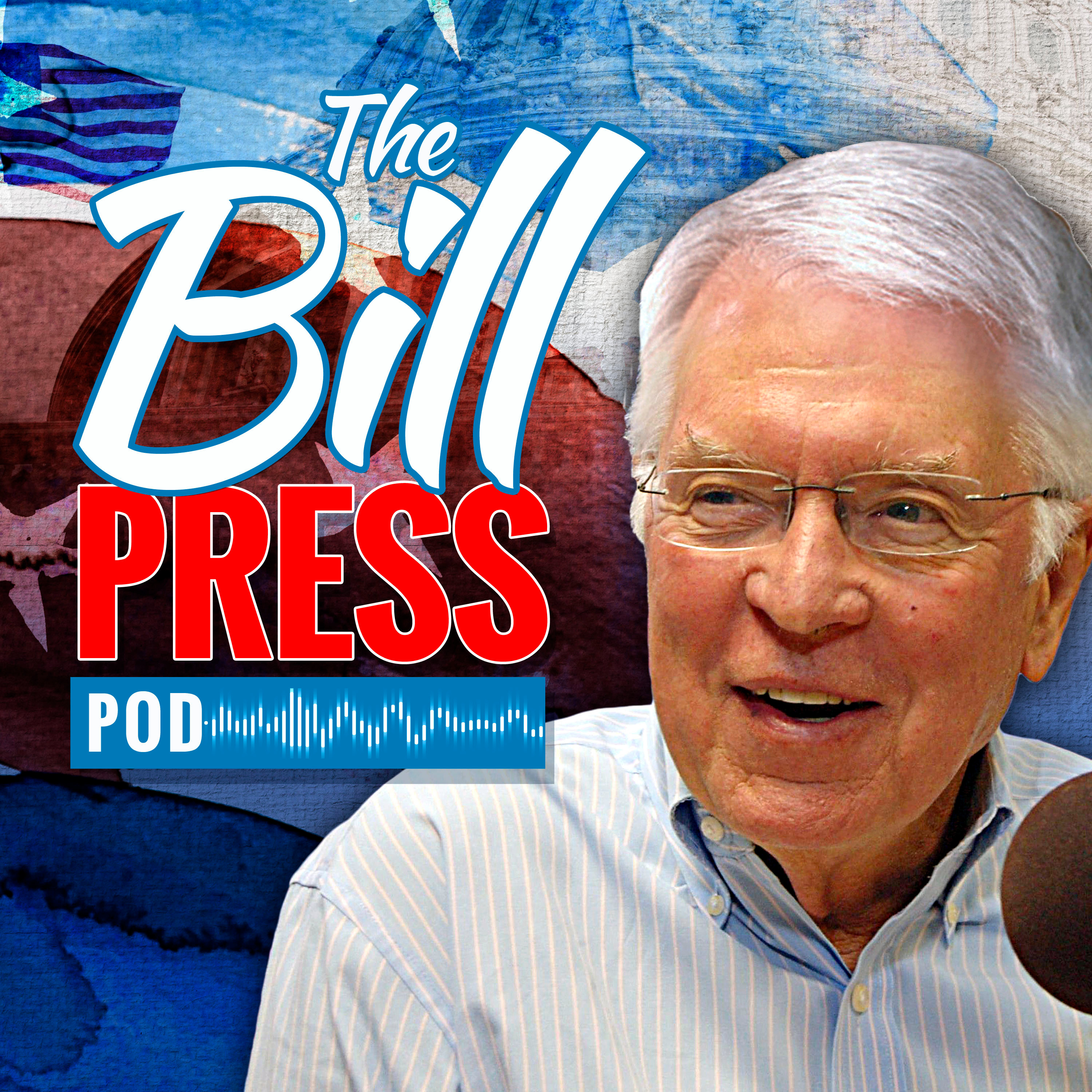
The Bill Press Pod
BP Pods
Ask Pastor John
Desiring God
The Weekly Show with Jon Stewart
Comedy Central
Ask Ligonier
Ligonier Ministries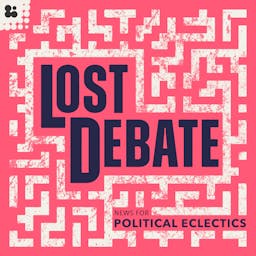
Lost Debate
The Branch
Coffee-Time-Again
Dale Hutchinson
5 Minutes in Church History with Stephen Nichols
Ligonier Ministries
The Ezra Klein Show
New York Times Opinion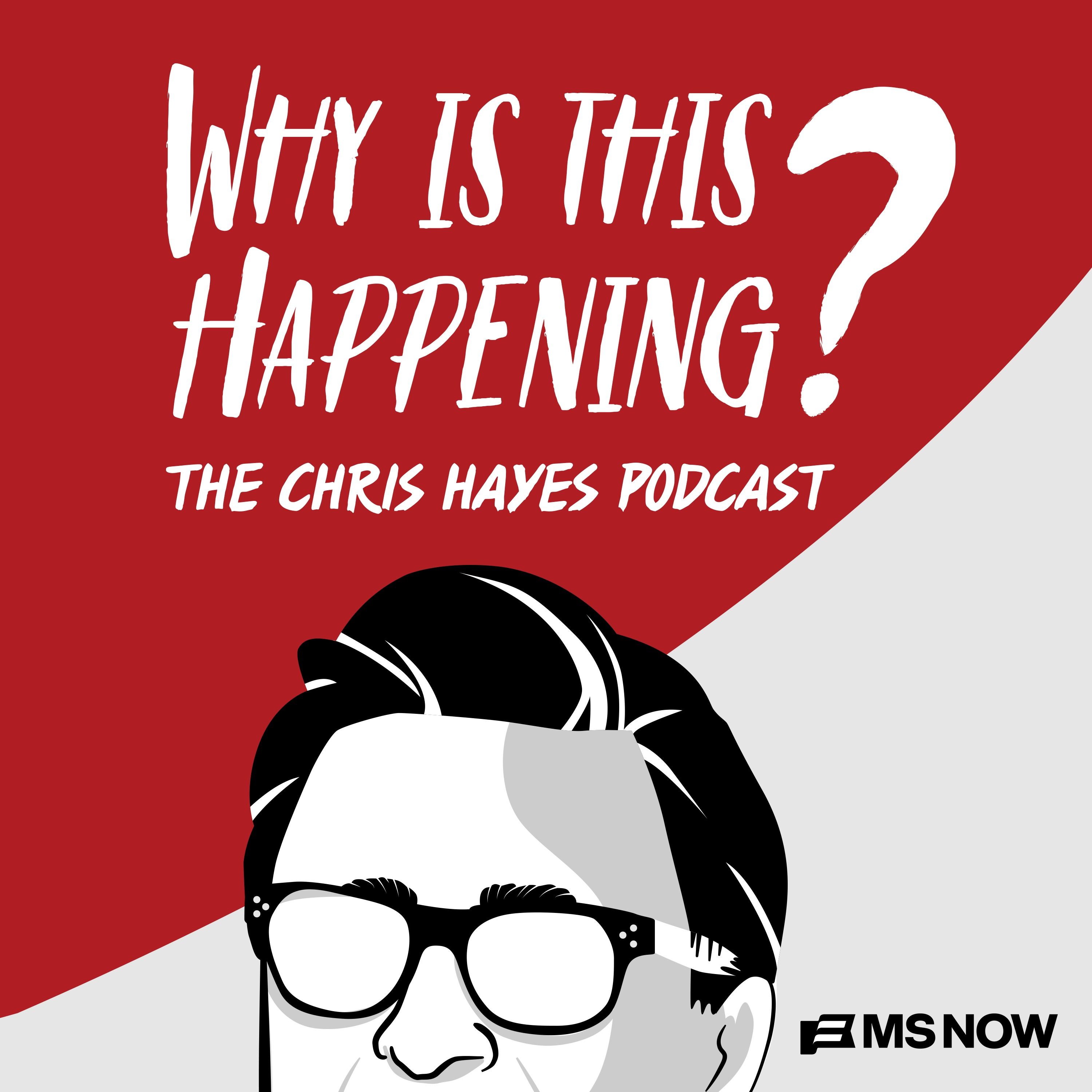
Why Is This Happening? The Chris Hayes Podcast
MS NOW, Chris Hayes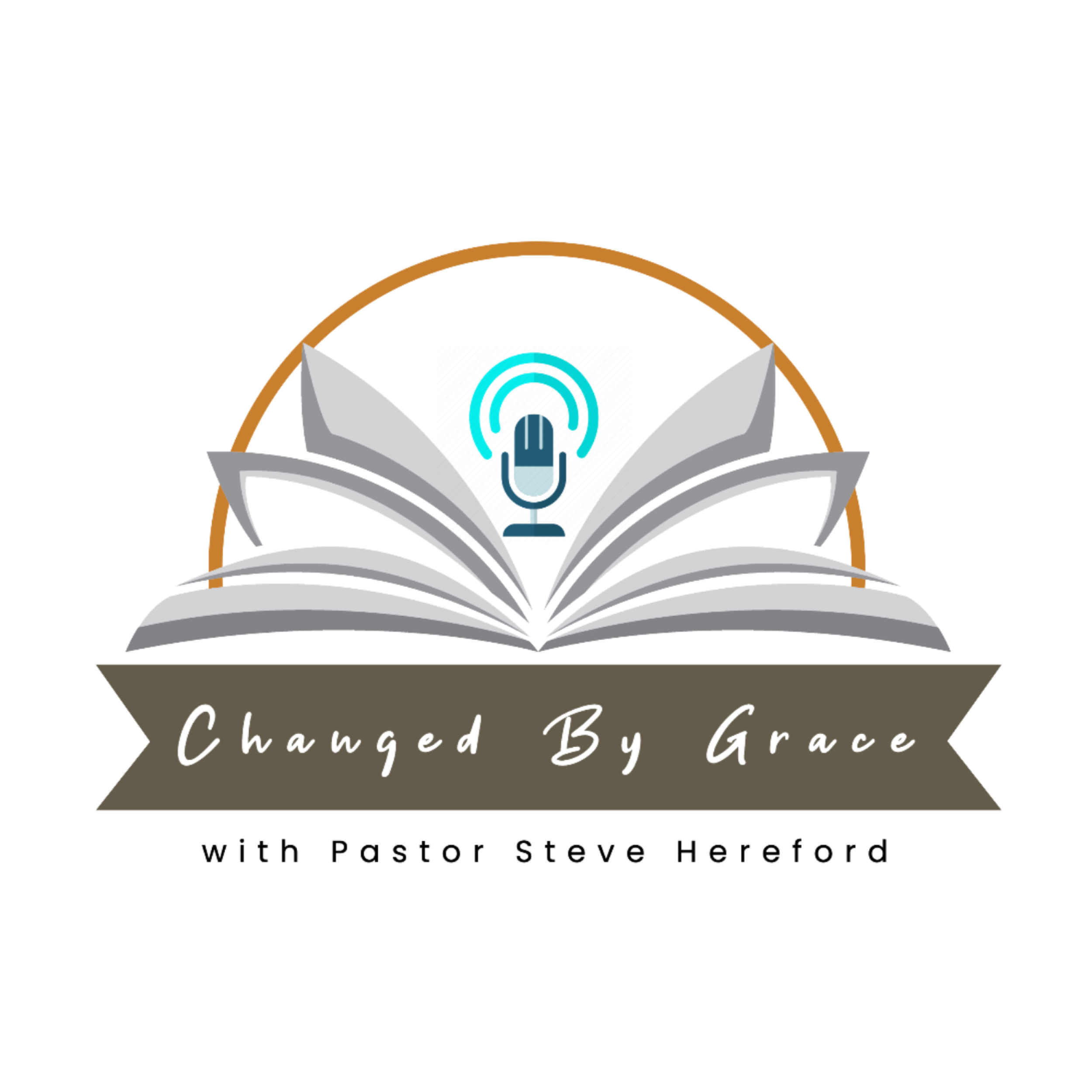
Changed By Grace
PodPoint
The Benjamin Dixon Show
The Benjamin Dixon Show
Thinking in Public with Albert Mohler
R. Albert Mohler, Jr.
Who Killed JFK?
iHeartPodcastsThe MacArthur Center Podcast
The Master's Seminary
Jean Jacques Machado : No Gi Required
Jay Zeballos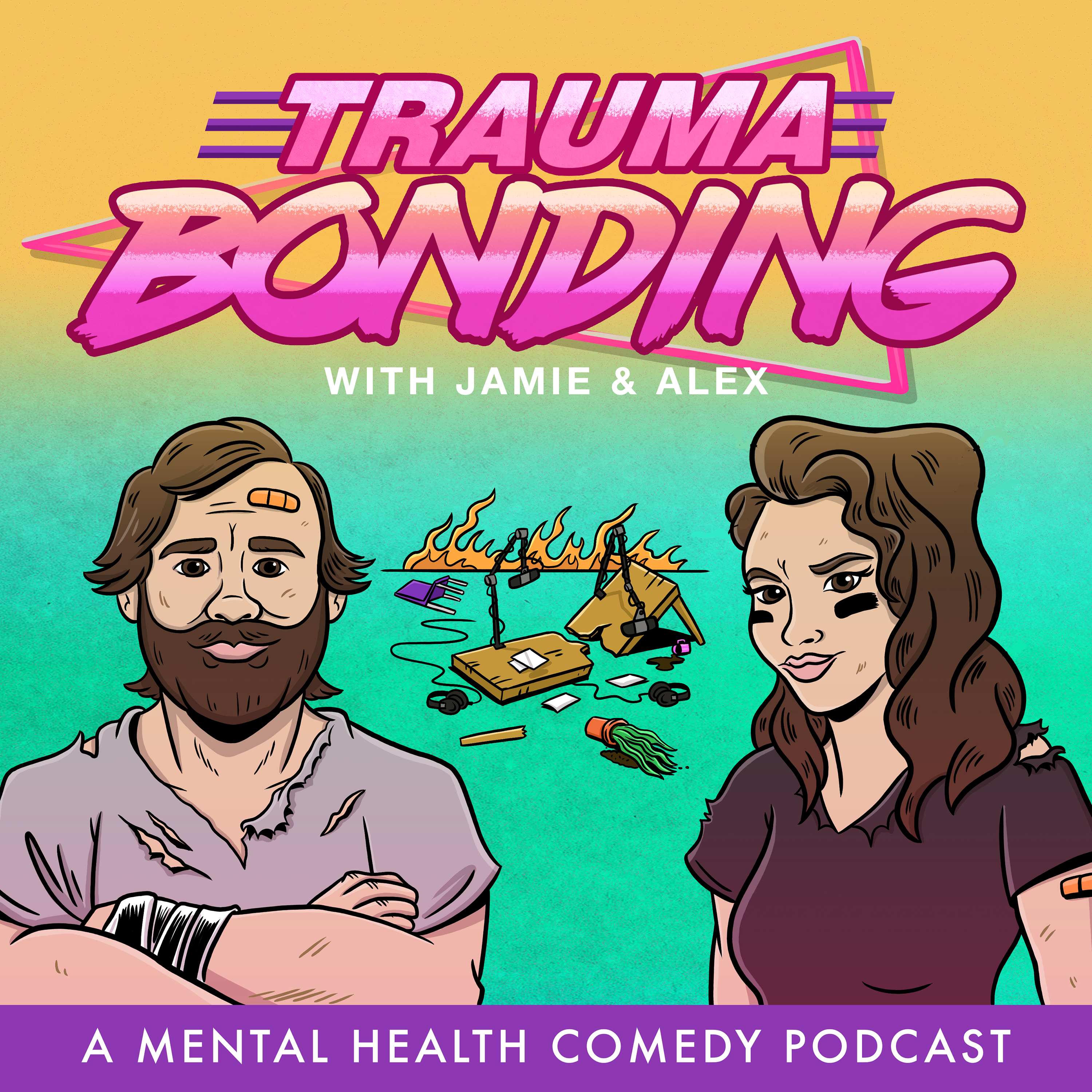
Trauma Bonding
Jamie Kilstein
This Day in History
The HISTORY Channel
The Ben Shapiro Show
The Daily Wire
The Sean Hannity Show
Sean Hannity
Breaking Points with Krystal and Saagar
iHeartPodcasts
The Kyle Kulinski Show
Kyle Kulinski